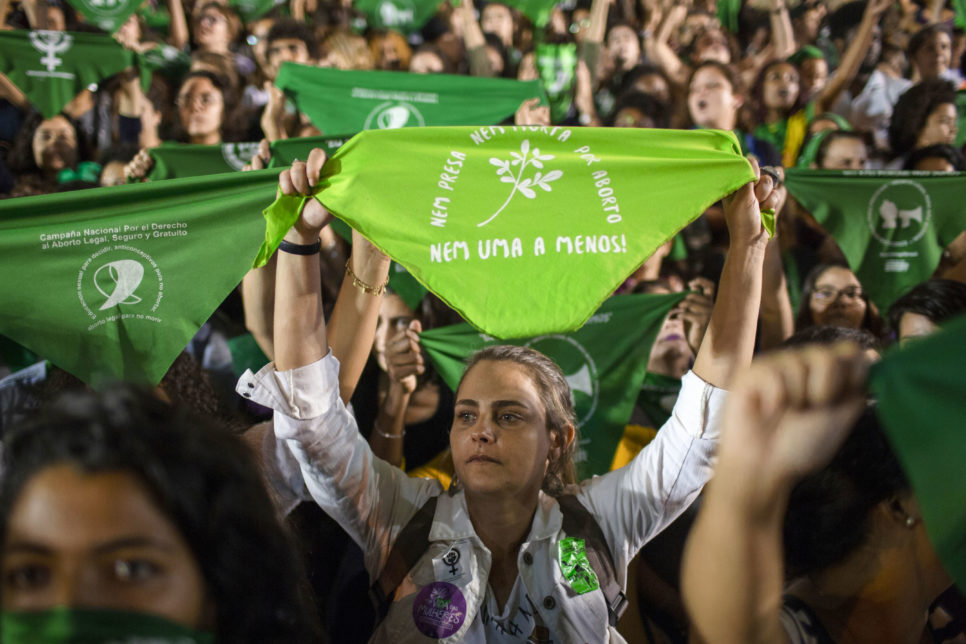On April 7, 2019, Army soldiers opened fire on a car in Vila Militar, a neighborhood in the northern zone of Rio de Janeiro, resulting in the death of musician Evaldo Rosa dos Santos. Besides Evaldo, the vehicle was also carrying his wife, his seven-year-old son, his father-in-law, and a friend. According to forensic reports, 257 shots were fired during the attack on the car. Eleven days later, Luciano Macedo, a waste picker who was shot by the soldiers while trying to help the family, also died from his injuries. The officers were conducting a patrol of the military security perimeter.
The case is one of the rare convictions of military personnel for the killing of civilians by the Military Justice system. At the trial, the officers were convicted for the homicides of Evaldo and Luciano. However, the appeal, which began in March 2024, has put this decision at risk. So far, two justices of the Superior Military Court (STM) have voted to acquit the defendants for the homicide of Evaldo Rosa dos Santos, citing insufficient evidence and considering the possibility of an impossible crime. Regarding the homicide of Luciano Macedo, they voted to reclassify the crime from intentional to negligent, reducing the sentence to approximately three years in an open regime, based on the argument of putative self-defense. This highlights the inadequacy of military courts in judging their peers in crimes against civilian life.
Conectas, together with the Odara Institute, the Institute for the Defense of the Black Population, and Global Justice, filed a request to join the case as amicus curiae. In their petition, these organizations argue that the confirmation of the acquittal and reclassification of charges against the military personnel in the criminal appeal exemplifies the unconstitutionality of Law 13,491/2017, which transferred jurisdiction for trying intentional crimes against life committed by military personnel during activities considered of a military nature to the Military Justice system. The legal argument presented by Conectas emphasizes that this expansion of the Military Justice system’s jurisdiction violates democratic principles, undermines the impartiality of the judges, and contravenes international human rights standards. Thus, beyond the pursuit of justice for the deaths of Evaldo and Luciano, the case raises broader questions about the suitability of the Military Justice system to try intentional crimes against civilians’ lives committed by military personnel.
Read more
The importance of the Guadalupe Case lies in its potential to redefine the boundaries of the Military Justice system’s jurisdiction in Brazil. The acquittal of the agents by the Superior Military Court (STM) would reinforce the arguments against the Military Justice system’s competence to judge such crimes, and highlight the need for these cases to be brought before the Civil Justice system and trial by jury.
The Inter-American Commission on Human Rights (IACHR) has already expressed concerns about the ability of the Military Justice system in Brazil to impartially judge crimes committed by its own members. The potential acquittal of the military personnel by the Superior Military Court (STM) could trigger a new wave of international criticism and pressure, placing Brazil under the close scrutiny of international human rights organizations.
The trial was suspended after Minister Maria Elizabeth Rocha requested a review, and no date has yet been set for its resumption. The outcome of this trial has the potential not only to determine the fate of the military personnel involved but also to influence legislation and legal precedent regarding the jurisdiction of the Military Justice system over crimes against civilians, directly impacting the safeguarding of human rights in the country.
Timeline:
- Action: Criminal Appeal
- Court: Appeals Court – Superior Military Court
- Status: Awaiting ruling
- Procedural Timeline:
- 10/05/19 – Filing of the charges
- 26/11/21 – Conviction sentence at trial court
- 02/12/21 – Defense filed an appeal
- 01/03/24 – Start of the appeal trial session in the STM, suspended following a review request by Minister Maria Elizabeth Rocha
- 30/08/2024 – Submission of a request to join the case as amici by Conectas, Odara, IDPN and Global Justice







